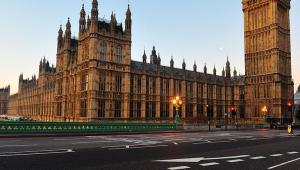10 March 2006
Two former permanent secretaries have told a committee of MPs that a weak Parliament is allowing a dominant government to pass legislation without proper scrutiny.
Lord Butler, the former head of the civil service and Sir Nicholas Monck, former permanent secretary at the Department of Employment, were addressing the Commons public administration select committee on March 2.
'Parliament has allowed itself to become too dominated by, and supine to, the executive in restraining against legislation,' said Butler. 'It lets legislation go through without what could be called proper scrutiny.'
Monck said that the problem could be partly remedied by amending the ministerial code, laying out the processes a policy proposal should go through before being presented to Parliament.
'Ministers would know that these questions would be asked and that, in effect, their reputation would be on the line,' he said.
The committee was shocked into momentary silence when Butler made a passing reference to ministerial involvement in 'approving' senior civil service appointments.
Chair Tony Wright said the committee and general public had previously believed that senior civil servants were appointed by the Cabinet secretary, and that ministers had to accept that decision.
Butler told him that applied only to appointments from outside the SCS. 'Certainly when competitions are open… I believe it works in the way in which you describe,' said Butler.
'Of course, there's a wide range of other internal appointments which happen in a more informal way: the head of the information division, or a principal private secretary, or a civil servant in charge of an important area of policy, for example. It's a dialogue between the permanent secretary and the minister.'
A spokeswoman from the Cabinet Office said that, according to the civil service management code, ministers had no say in the process of open recruitment, but could turn down an appointee. If they did so, that would be recorded in the Civil Service Commissioner's annual report.
Wright told Public Finance that Butler's comments 'raised some interesting and important questions about the existing ministerial involvement in a range of civil service appointments'. He added that the PASC would investigate these issues further as part of its inquiry into the relationship between ministers and civil servants.
Retirement age exemptions to be 'negligible'
The number of civil servants exempt from the forthcoming increase in the retirement age is likely to be 'negligible', according to Cabinet Office minister Jim Murphy.
To ensure that departments comply fully with plans to raise Whitehall's retirement age from 60 to 65 from October 2006, Murphy told MPs that the Civil Service Pension Scheme is 'quality proofing its terms and conditions'.
But in a written statement to the Commons last week, he added: 'Those areas of the civil service which consider that they need to maintain a retirement age below 65 will only be able to do so if they can objectively justify this by reference to particular circumstances.
'It is anticipated, however, that this will be a negligible figure against the total number of permanent civil servants.'
The Cabinet Office is consulting over its proposed Whitehall pension reforms, and there are no groups automatically exempt from the current retirement age of 60 outside of the senior civil service, largely because there is no central diktat from the department.
However, individual organisations with staff in the CSPS, such as the prison service, can agree to specific exemptions.
The Prison Officers Association, among others, has put forward its case for retaining the existing retirement arrangements for staff undertaking physical work, but Murphy's statement is likely to disappoint such groups.
A senior Whitehall source told Public Finance?: 'It is very unlikely that claims for exemptions are going to be welcomed by ministers under pressure to standardise the retirement age for public and private sector staff.'
However, a spokeswoman for the Cabinet Office said the department had 'not yet ruled out formal exemptions'.
Varney joins Rowlands to run Whitehall Two
Sir David Varney, chair of the Revenue and Customs department, will work alongside transport permanent secretary David Rowlands to oversee Whitehall's ambitious shared services programme.
The Cabinet Office has revealed that Varney has joint oversight of Whitehall Two — a plan to share finance, human resources and IT functions across up to ten central government departments — alongside Rowlands, whose role in the project was revealed by Public Finance last week.
The two men are discussing how to divide their responsibilities.
A Cabinet Office spokeswoman told PF: 'In line with the new corporate governance arrangements for the civil service, David Rowlands and David Varney have each been asked to take a leadership role on different aspects of shared services. They are considering how this will be taken forward.'
Whitehall Two will link up back-office services across Whitehall as part of the government's plan to cut billions of pounds off administration costs. A plan to share human resources services across just three departments was pulled last year following advice from the Office of Government Commerce.
PFmar2006


















